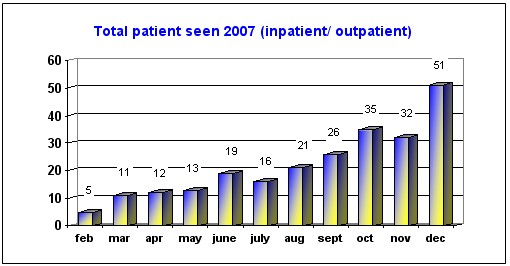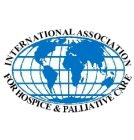Regional Report from the
United Arab Emirates
PALLIATIVE CARE INITIATIVE UNITED ARAB EMIRATES
United Arab Emirates (UAE) is a small Middle Eastern country on the Persian Gulf with a 4.3 million population. The population is comprised of 15% native and 85% expatriate workers from all over the world including many from Asian countries. UAE is a confederation of seven small kingdoms with Abu Dhabi as its capital. It is a prosperous country with a booming oil economy as well as trade. In 1999 the United Nations Human Development Index (HDI) placed the UAE forty-third in its list of countries with high human development and the fourth most developed of the Arab states.
The health care system is presently government funded but is slowly changing to an insurance based private sector. The late Sheikh Zayed was the first president of UAE who issued a royal decree that all patients with a cancer diagnosis are provided free treatment.
Previously, cardiac disease was considered the major cause of death in the country, but a recent survey, following a change in the death reporting system, revealed that cancer is the leading cause of death (20%) followed closely by accidents (19%) and heart diseases(12%).
In Jan 2007, Tawam Hospital in Abu Dhabi, administered by Johns Hopkins Medicine, decided to start the first organized palliative care service in the country. This is a 500-bed tertiary care hospital and the largest cancer center in the country. 812 cancer patients were treated at this center in 2006. The plan was to develop a fully functional palliative care service over a period of 6 months. Initially, a consultation service was started in February 2007 along with intensive education for all health care workers. After two months, an outpatient clinic and finally and inpatient unit (5 beds) was started by the end of six months.
During the first month of operation, only 5 patients were referred to the service but with education and spreading of the palliative care message there was an increase in the number of consultations to 51 patients in December 2007.
A total of 243 patients were treated by the palliative care service in 2007. The majority of cancer patients are expatriate workers with ratio of 2.3: 1 to native cancer patients. The end of life problems of expatriate cancer patients are very different from those of native cancer patients. The expatriates have limited social and emotional support because they are either single or part of a small family unit. The anguish of dying away from home and in a foreign land increases their suffering. The native cancer patients have the support of an extended family and social network. There are charities that provide financial support to poor expatriate patients. The social, psychological and emotional issues in the expatriate cancer patients in UAE need further study.
The palliative care service in Tawam Hospital has generated interest in other hospitals which now seek guidance from our service in order to start their own programs.
Dr Mohammad Hidayatullah
Consultant Palliative Medicine
Department of Oncology
Tawam Hospital Johns Hopkins Medicine
Al Ain, United Arab Emirates

Email this page to a friend!
Top of Page |

